-
•
•
5 responses
We’re wrapping up the end of a year studying the Book of Mormon (whether at home or with our wards or branches) and soon will be turning our focus to the Doctrine and Covenants. J. Stapley at BCC recently ran a useful post discussing some approaches and resources we can use for studying the Doctrine and Covenants and Ben Spackman also recently posted an updated list of recommended reading for Church History and the Doctrine and Covenants topics. The Church has many meaningful resources available for study including: The Joseph Smith Papers Project site, which include links to the Sources… Read More
-
•
•
11 responses
You are the light of the world. A city set on a hill cannot be hidden; nor do people light a lamp and put it under a basket, but on the lampstand, and it gives light to all who are in the house. Your light must shine before people in such a way that they may see your good works, and glorify your Father who is in heaven. (Matthew 5:14-16, New American Standard Bible) Take care not to practice your righteousness in the sight of people, to be noticed by them; otherwise you have no reward with your Father… Read More
-
•
•
11 responses
It’s become something of a communis opinio doctorum that Joseph Smith didn’t make use of the gold plates while translating the Book of Mormon. Read More
-
•
•
25 responses
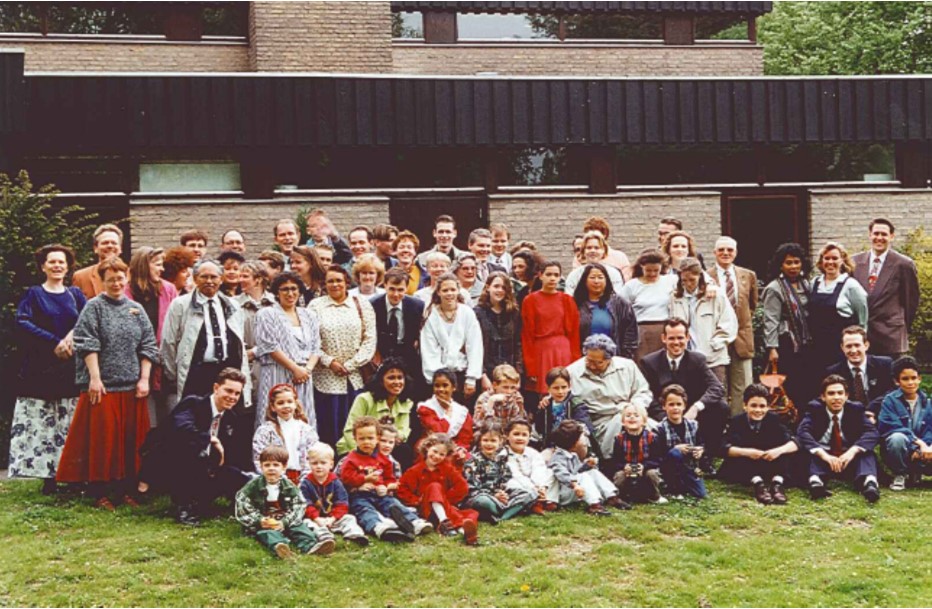
Over a month ago, I was asked by the Salt Lake Tribune what a reelection of Donald Trump would imply for the International Church. The reasoning of the journalist was that Trump’s performance as President of the United States, especially his handling of the covid-19 pandemic, was severely damaging not only his status in the world but also of the USA as a nation and world leader. Consequently, was the reasoning, conversion to a church that is primarily seen as a USA church, would be hampered. The Utrecht Ward in 2000 My reaction at the time—when reelection was still possible—was… Read More
-
•
•
2 responses
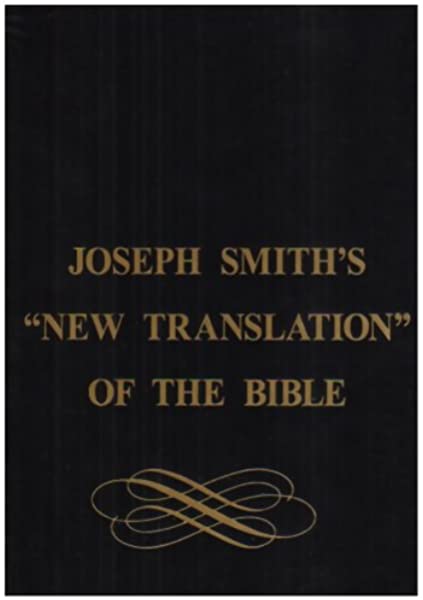
Joseph Smith’s translation projects have been a hot topic this year. Among many others, earlier this fall we did two posts that discussed the possibility that Joseph Smith relied on the Adam Clarke commentaries for some of the changes he made in the Joseph Smith Translation of the Bible. Recently, Kent P. Jackson (a retired professor of religion at Brigham Young University) published a response to the articles that we were discussing, which share evidence of Joseph Smith using the Adam Clarke commentary. In his article, published in Interpreter: A Journal of Latter-day Saint Faith and Scholarship, Jackson expressed his… Read More
-
•
•
7 responses
For the past few years, I’ve tried to take some time each year to focus in on a specific subject related to the section of scriptures covered in Sunday School. Last year, for example, I tried to scratch the surface of understanding Paul in the New Testament and look at some of how scholars approach him. This year, I focused on understanding how the Isaiah texts are used within the Book of Mormon—particularly in Nephi’s writings. I shared some very preliminary thoughts from studying Isaiah in 1 Nephi earlier this year, but since then I’ve done a lot more reading… Read More
-
•
•
5 responses

A common motif in accounts of the translation of the Book of Mormon is how others beside Joseph Smith were forbidden, prevented, or to the contrary permitted to view the gold plates, the interpreters or the translation process. Read More
-
•
•
9 responses
Let it be said first off that I am a last days cynic. It’s not that I think many current ideas of apocalypticism are weird (I mean, I don’t just think they’re weird). I just really hate them. This is likely partly due to growing up in the 90’s right when apocalyptic fervor was still enjoying a level of mass popularity that put it up in the doctrinal hierarchy somewhere in between the Resurrection and not committing murder. I vividly remember sitting in seminary and Institute and Sunday School classes brooding, teenage-like, as I listened to lesson after lesson about… Read More
-
•
•
14 responses
In her provocative work Eichmann in Jerusalem, Hannah Arendt proposes a fascinating insight. “Evil in the Third Reich had lost the quality by which most people recognize it—the quality of temptation,” she writes. “Many Germans and many Nazis, probably an overwhelming majority of them, must have been tempted not to murder, not to rob, not to let their neighbors go off to their doom…and not to become accomplices in all these crimes by benefiting from them. But, God knows, they had learned how to resist temptation.” As Arendt explains, defining evil as temptation—as something that we are not allowed to… Read More
-
•
•
18 responses
Last week, the Church released some new updates about the new hymnbook and children’s songbook. The short and sweet version is that we’re still several years away from the books being published and that the process and the books themselves are evolving (both due, at least in part, to the sheer volume of material that is being evaluated for inclusion and current world circumstances). We’ll look into the specifics in a minute (and I’d love to have some discussion about what you think about the projects from what we know), but first I’ll take a moment to link this to… Read More
-
•
•
We last heard from Mary while she was living in Jerusalem, and we’re excited to welcome back her insights as we round out the year. In addition to her stint in Jerusalem, Mary has lived on the east coast and overseas in England—though she’s a Utah native and currently resides in Utah Valley with her husband and children. She’s an avid reader, a committed student of the gospel and religious studies more broadly, and has spent a number of years teaching both seminary and institute. Welcome back Mary! Read More
-
•
•
3 responses
Terryl Givens—one of the foremost Latter-day Saint authors, theologians, and apologists of our time—recently penned a short volume on 2nd Nephi as part of the brief theological introductions to the Book of Mormon series the Maxwell Institute has been publishing this year. I wrote a review of the book earlier this year, but recently Kurt Manwaring recently did a 10 questions interview with Dr. Givens that is interesting and worth reading. What follows here is a co-post to the interview (a summary with excerpts and some commentary), but I do recommend going to read the full interview at Kurt Manwaring’s… Read More
-
•
•
7 responses
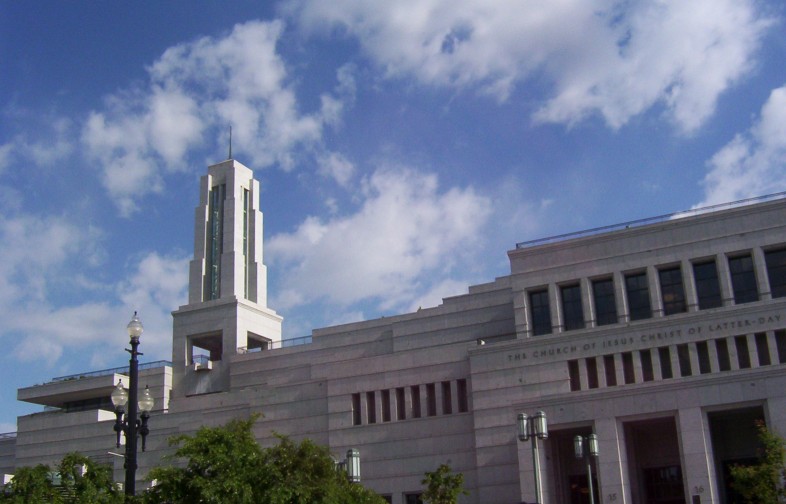
What is it about our Church leaders that lends their speeches authority? While ultimately the belief that the men we sustain as prophets, seers, and revelators are in communication with God is what lends them the greatest amount of authority, I believe that there are other factors that shape how they are perceived and how much weight of authority the words of various Church leaders are given. A number of years ago, David John Buerger noted that Elder Bruce R. McConkie stood out as one of the most influential general authorities of mid-20th century in the Church of Jesus Christ… Read More
-
•
•
One response
The scriptures are replete with examples telling us to seek out personal revelation and use scriptural precedent and principles to guide our decisions. Anyone who has sincerely tried to do this over an extended period of time knows that it is easier said than done. How do we distinguish the guidance of the Spirit from a sea of conflicting emotions and ideas? How do we know which scriptural precedent applies to our lives? Even (near) perfect sources–revelation and scripture–suffer from our limitations as (very) imperfect recipients. I thought of this when I was reading in Alma with my family last… Read More
-
•
•
29 responses

I propose that there is a continuity of method connecting Joseph Smith’s translations of ancient texts, from the Book of Mormon to his encounter with the Kinderhook plates, and that this method was both expansive and linguistic. Read More
-
•
•
14 responses
I appreciated the tone and intent of Michael Austin’s By Common Consent post responding to Terryl Givens’ post at Public Square. He correctly identifies the question of abortion as one of competing rights: the right of the unborn human being to life set against the right of the mother to preserve her bodily integrity, but he makes two crucial mistakes. First, he is too hasty in his application of the organ donation argument to abortion. According to that argument, since we do not require anyone to donate blood or organs to someone in need, surely we cannot require a pregnant… Read More
-
•
•
16 responses
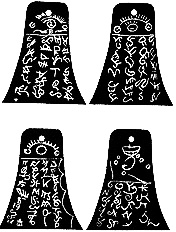
Don Bradley and Mark Ashurst-McGee have published the definitive account of Joseph Smith’s 1843 encounter with the Kinderhook plates. Read More
-
•
•
6 responses
For forty years before his call to the Quorum of the Twelve, Russel M. Nelson spent his career as a cardiovascular and thoracic surgeon. One aspect of his work that had a profound impact on him was that it “brought me into contact almost daily with seriously ill patients who faced the real prospect of death.” While he saw death as a foe to fight against while he was a doctor, his later time in the ministry led him to “no longer feel that death is always that foe to be feared. Instead,” he wrote, “I view it as a… Read More
-
•
•
56 responses
The Legal Status of Abortion, Revisited I’ve talked to Terryl Givens (my dad) a few times since his article on abortion for Public Square came out. Both of us are disappointed, but not at all surprised, by some of the reactions from fellow Latter-day Saints. I’ll dive into one such response–a post from Sam Brunson at By Common Consent–but only after taking a minute to underscore the difference between an extreme position and a fiercely-held moderate position. There’s a reason why the first section in Terryl’s piece is an explanation of the current legal status of abortion in the United… Read More
-
•
•
7 responses
Two attitudes about translation are on my mind. One is about Joseph Smith: “Seeing words appear in a seer stone is magic, not translation. Translation is when you have the equivalent text in a foreign language, like Google Translate.” The other attitude is not uncommon among translators and translation clients: “Google Translate isn’t translation. It’s just inputting one text and getting the mechanical equivalent in another language.” Read More
-
•
•
9 responses
Throughout my time studying President Nelson’s conference addresses, I observed that one topic that he came back to over and over is families. Whether it be decrying the fragmentation of families, encouraging men to pay more attention to their wives, or offering encouragement to women who are mothers, Russell M. Nelson has had a lot to say about families over the years. In discussing this topic, this puts us here in the overall scheme of thing: Introductory Thoughts President Nelson’s Favorite Topics and Phrases God and Power The Church, Priesthood, and Gathering Israel Family Plan of Salvation Examining the Sources… Read More
-
•
•
9 responses
John Turner’s well-known biography Brigham Young: Pioneer Prophet (Harvard University Press, 2012) provides one of the most well-rounded and in-depth look at the second president of the Church of Jesus Christ of Latter-day Saints. It remains today one of the definitive biographies of an incredibly complicated man and leader. Recently, Kurt Manwaring sat down with the author to discuss the book after eight years of time to reflect on the volume and on the prophet it discusses. What follows here is a co-post, with excerpts and commentary on the interview. For the full effect, however, I recommend going over and… Read More
-
•
•
13 responses
The Interpreter has recently published two reviews of William L. Davis’ Visions in a Seer Stone. The two reviews, by Brant Gardner and Brian Hales, exemplify what I think are positive trends in Latter-day Saint contributions to Mormon Studies. Read More
-
•
•
4 responses
Last year, the Church released the guidelines by which a committee was evaluating hymns and songs for inclusion in the next hymnbook and children’s songbook and a list of topics they wanted to see more hymns about. What surprised me as I studied President Russell M. Nelson’s general conference talks was how frequently the list of topics the hymnbook committee wanted to see more hymn submissions focus on lined up with what seemed to be President Nelson’s favorite topics: “Praise and Worship”, “The Atonement of Jesus Christ”, “The Plan of Happiness”, “Gospel Learning and Revelation”, “The Family of God”, “Our… Read More
-
•
•
14 responses
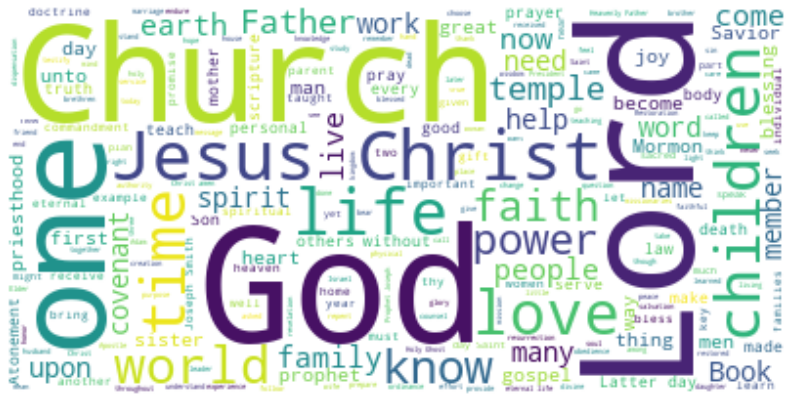
This is the beginning of the second part of my analysis of President Russell M. Nelson’s general conference talks, focusing on his favorite topics and statements. In looking at what President Nelson talks about, I tried to take a few approaches to understand his favorite topics objectively. Approaches included word count analysis of his talks and the titles of his talks, noting topics that come up frequently across his talks as I read them, looking at the focus of initiatives that have come out under his administration, and observing key phrases that come up on a repeated basis. For the… Read More
-
•
•
16 responses
Our unhappy political moment has unfortunately corrected a longstanding asymmetry in ideologically-driven exit options. Read More
-
•
•
30 responses
A couple years back—not long after President Russell M. Nelson was sustained as President of the Church of Jesus Christ of Latter-day Saints—Elder Neil L. Anderson spoke of a project his wife undertook: While my wife, Kathy, has known President Nelson personally for nearly three decades and has no question about his divine mantle, upon his setting apart, she began reading all his general conference talks of the past 34 years, praying for an even deeper assurance of his prophetic role.[1] Now, unlike Sister Anderson, I do not know President Nelson personally and, to be frank, he was never one… Read More
-
•
•
9 responses
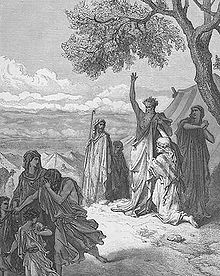
In a candid moment in January 1858, an early Church leader named Zerah Pulsipher told his family that: “Most of you are young therefore you have the advantage of me because [yo]u have less Gentile Traditions to over com[e].”[1] This is an interesting observation from Pulsipher—all of the early Church members (including leaders) were converts to the Church and they brought much of their previous beliefs and traditions with them into the Church, including many good and correct beliefs, but also some incorrect beliefs as well. In the latest volume of the official history of the Church, an example of… Read More
-
•
•
31 responses

The “Come, Follow Me” manuals for 2021’s course of study are available online now. Looking ahead to the next year, I have been curious to see if they were going to stick strictly to the scriptures related to the history of our modern dispensation (Doctrine and Covenants and parts of the Pearl of Great Price), or if they were going to focus on our Church’s history via the Saints volumes and have relevant sections of the scriptures discussed along the way. The authors the manuals chose to go with the former, focusing on the scriptures—with a major exception. On the… Read More
